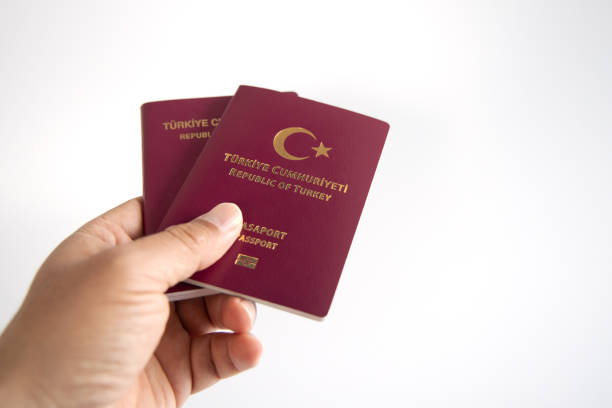Unlocking the Wonders of Vietnam: Why Greek Citizens Need a Visa
Welcome, fellow wanderlusts! Are you a Greek citizen dreaming of embarking on an unforgettable adventure to Vietnam? Well, get ready to be captivated by the mesmerizing landscapes, rich history, and vibrant culture that this Southeast Asian gem has to offer. But hold on tight! Before you dive into planning your epic journey, there’s one crucial thing you need to know: as a Greek passport holder, you’ll need a visa to unlock the wonders of Vietnam. Don’t fret though; in this blog post, we’re here to enlighten you about everything from the breathtaking Ha Long Bay to savoring authentic pho in Hanoi – all while unraveling the mysteries behind obtaining your Vietnamese visa. So fasten your seatbelts and let’s embark on this exhilarating journey together! VIETNAM VISA FOR GREEK CITIZENS
Introduction to Vietnam and the Visa Requirements for Greek Citizens
Vietnam is a Southeast Asian country known for its stunning landscapes, rich history, and unique culture. It attracts millions of tourists every year with its bustling cities, beautiful beaches, and delicious cuisine. As a Greek citizen, you may be wondering how to make your dream trip to Vietnam a reality. The first step in planning your journey is understanding the visa requirements for Greek citizens.
As of 2021, citizens of Greece are required to obtain a visa before entering Vietnam. There are two types of visas available for Greek citizens: the e-visa and the visa on arrival.
The e-visa is an electronic visa that can be applied for online through the Vietnamese Immigration Department’s website. This process allows you to apply for a single-entry visa valid for up to 30 days before your planned date of entry into Vietnam. The application requires basic personal information and supporting documents such as a passport scan and digital photo. Once approved, you will receive an electronic approval letter which must be presented upon arrival at one of the designated airports in Vietnam.
The second option is getting a visa on arrival (VOA). This type of visa also requires an approval letter but can only be obtained through authorized travel agencies or tour operators in Vietnam prior to your departure from Greece. The VOA is recommended if you plan on staying longer than 30 days or entering the country via land or sea borders. VIETNAM VISA FOR HUNGARIAN CITIZENS
In both cases, there are certain documents that must be presented upon arrival in Vietnam including:
1) A valid passport with at least six months’ validity remaining
2) Completed application form
3) Two recent passport-sized photos
4) Visa approval letter (for VOA)
5) Stamped exit/entry form (provided upon arrival)
It’s important to note that Vietnamese immigration authorities require visitors to have at least two blank pages in their passports for entry stamps.
In addition to these requirements, it’s crucial to have proof of onward travel and sufficient funds for your stay in Vietnam. The standard visa fee for Greek citizens is $25 USD for a single-entry visa and $50 USD for a multiple-entry visa. These fees must be paid in cash upon arrival.
As a Greek citizen planning to visit Vietnam, you will need to obtain a visa before your trip. Whether you choose the e-visa or VOA option, it’s essential to have all the necessary documents and fees ready to ensure a smooth entry into this beautiful country. So start planning your adventure now and get ready to unlock the wonders of Vietnam!
Why Do Greek Citizens Need a Visa for Vietnam?
Vietnam, with its stunning landscapes and rich culture, has become a popular destination for travelers from all around the world. However, many Greek citizens may be surprised to learn that they need a visa in order to enter Vietnam. This requirement often raises questions and confusion among potential visitors from Greece. In this section, we will delve into the reasons why Greek citizens need a visa for Vietnam.
First and foremost, it is important to understand that every country has its own immigration laws and regulations. These laws are in place to ensure the safety and security of both tourists and the host country. As such, Vietnam requires all foreign nationals to obtain a visa before entering the country. This includes Greek citizens who wish to visit for tourism or business purposes.
One of the main reasons why Greek citizens need a visa for Vietnam is due to reciprocity between the two countries. Reciprocity means that if one country requires visas for citizens of another country, then that other country will also require visas for its citizens visiting the first country. In this case, Greece currently requires Vietnamese citizens to obtain a visa when entering their country; therefore, Vietnam also requires Greek citizens to have visas.
Moreover, obtaining a visa allows Vietnam’s government to regulate and control their tourism industry more effectively. With an increase in international tourism over recent years, it is crucial for any country’s government to have measures in place that monitor visitor numbers and purposes of travel. By requiring a visa, Vietnam can keep track of how many people are entering their borders at any given time.
Visas also serve as an added layer of security screening for visitors entering Vietnam. The application process typically involves providing personal information such as passport details and travel plans which undergo rigorous checks by immigration officials before approval is granted.
Additionally, having a valid visa ensures smooth entry into Vietnam upon arrival at ports of entry such as airports or land borders. Without proper documentation in hand prior to travel, there is always the risk of being denied entry at the border, which can result in additional costs and stress for travelers.
Greek citizens need a visa for Vietnam due to reciprocity between the two countries, as well as for security and immigration control purposes. Obtaining a visa is an essential step in planning a trip to Vietnam and ensures a hassle-free journey into this beautiful country.
